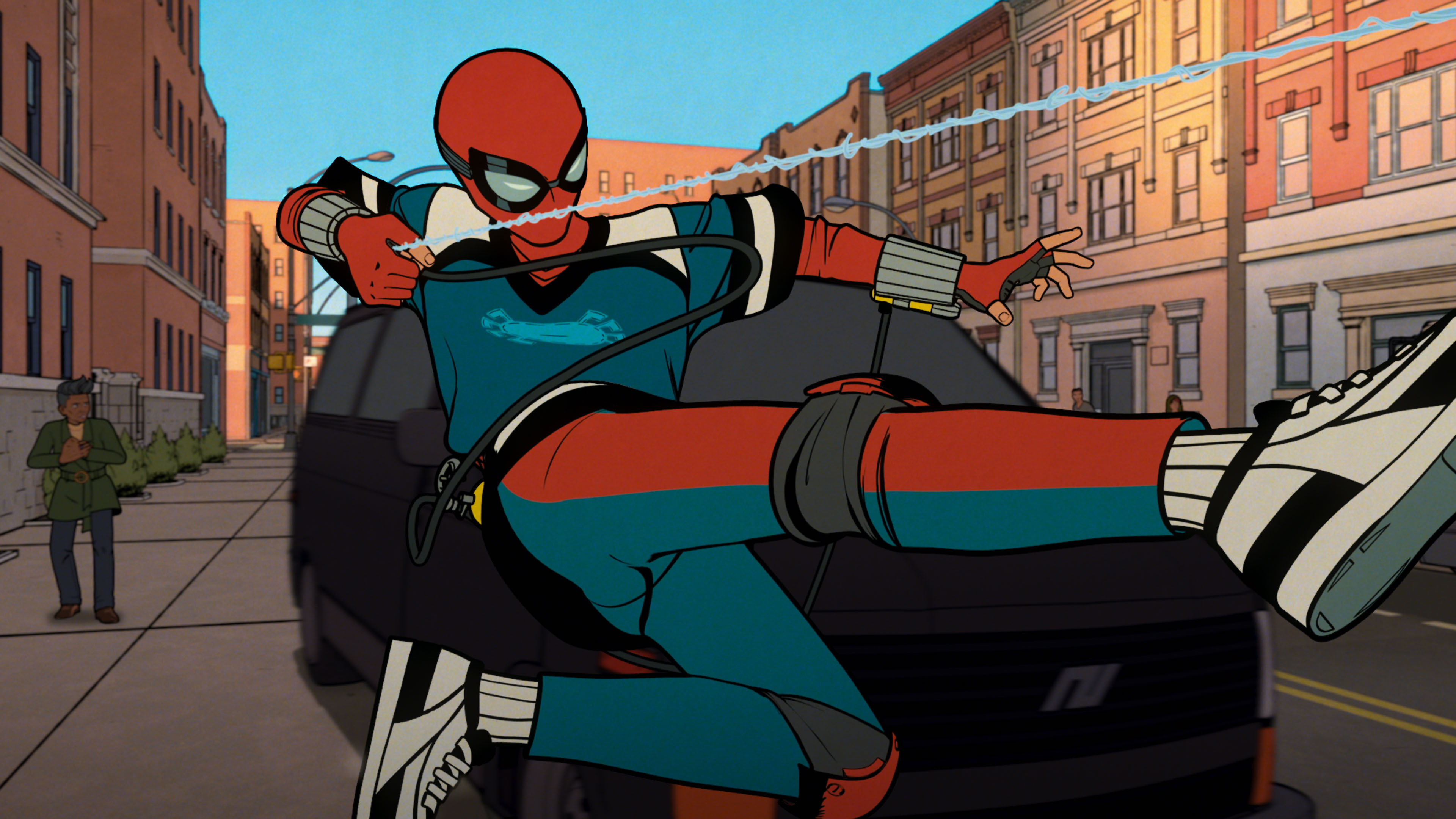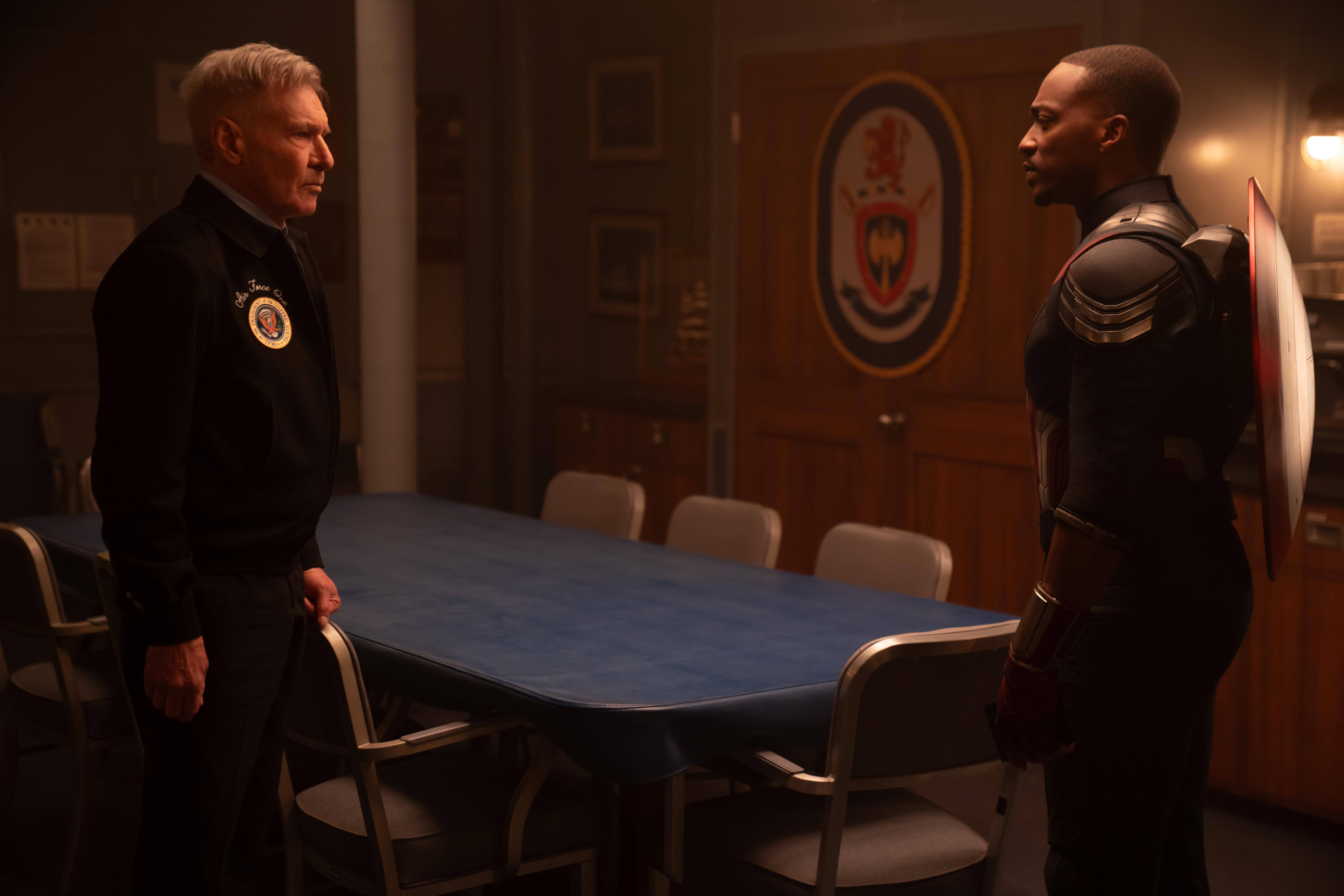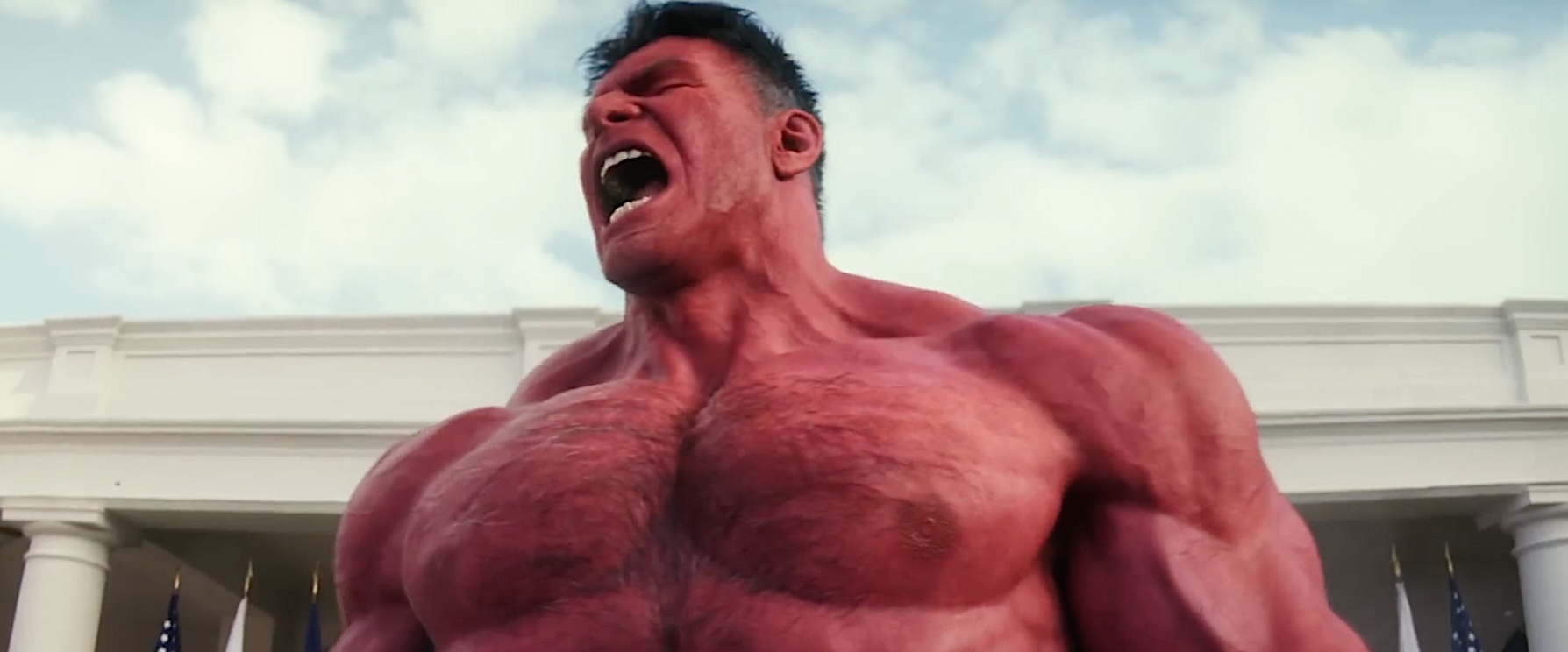This review of Wes Anderson’s The Wonderful Story of Henry Sugar comes from the film’s premiere at the 2023 Venice International Film Festival. The film will be released later this September.
Earlier this year, Wes Anderson released the charming, melancholy Asteroid City. It bore his signature children’s pop-up book style, but in order to chip away at the hardened layers of grief, he presented his usual flourishes with uncanny restraint. His second release of 2023, The Wonderful Story of Henry Sugar, rushes in the opposite direction, replacing mournful silences with the nonstop rattle of narration while building exuberant layers of eye-popping façade.
A 40-minute adaptation of a 70-page story, Henry Sugar is as much Anderson’s version of the tale as it is an ode to the author, Roald Dahl. (Anderson previously adapted one of Dahl’s other children’s books, 1970’s Fantastic Mr. Fox.) In fact, Dahl’s short — part of the short-story collection The Wonderful Story of Henry Sugar and Six More — is so uniquely suited to Anderson’s sensibilities, with its multi-layered narrative and imaginative whimsy, that this project is the closest page-to-screen translation in cinema.
That may sound like hyperbole, but the way Anderson uses Dahl’s text verges on experimental. It isn’t the basis for his script, it’s the script itself, with characters enacting the plot while narrating the prose word-for-word. They often follow their own lines of dialogue with “I said” and similar, turning briefly to the camera, as if they’re all collectively reading the story to the audience.
That idea could be misguided, but it creates a rapid-fire energy. Anderson had his cast practically memorize the entire story and deliver it in long, unbroken bursts, as they saunter between flats and painted sets that move to reveal new ones each time there story changes setting. If not for a handful of specific, pointed cuts used to emphasize poignant moments, it would feel as though the whole film were a stage production playfully shot in a single take.
While the subject of the story appears to be wealthy gambler Henry Sugar (Benedict Cumberbatch), the title is a bit of a bait-and-switch, since Henry only features prominently in the final third. The actual subject is the “wonderful story,” told by a narrator (Ralph Fiennes) who introduces Sugar just as he discovers a doctor’s journal that records the recollections of an Indian man with the mystic ability to see without his eyes. Naturally, Sugar immediately thinks about how that ability could help him win card games. Right from the outset, this structure falls perfectly in line with Anderson’s approach to several of his recent films (The Grand Budapest Hotel, The French Dispatch, and Asteroid City), in which a story’s telling is as vital as the story itself.
:no_upscale()/cdn.vox-cdn.com/uploads/chorus_asset/file/24894260/The_Wonderful_Story_of_Henry_Sugar_n_00_32_25_19r.jpg)
Fiennes opens the story as a reclusive writer dressed in warm, earthy tones, seated cozily in a messy cottage splattered with personal belongings. That feels like any other tableau that could have sprung forth from Anderson’s mind — with the help of production designer Adam Stockhausen and cinematographer Robert Yeoman, two of his key collaborators — but it’s based entirely on real pictures of Roald Dahl, down to the tiniest detail.
With Grand Budapest, French Dispatch, and Asteroid City, Anderson framed his movies as, respectively, a series of interviews, a symposium about newspaper articles, and a teleplay about a stage play, hopscotching across media to disguise his most emotionally impactful moments. The Wonderful Story of Henry Sugar is a book about books, so he adapts the very act of its authorship. That bares one of the most vulnerable parts of his process up front: inspiration. The rest of the film is a mile-a-minute comedy, but it begins as a fantasy collaboration between Anderson, who began making films in 1992, and Dahl, who died in 1990.
This moving tribute quickly gives way to controlled chaos. Sugar discovers a journal belonging to Z.Z. Chatterjee (Dev Patel), an Indian doctor in pre-Independent Calcutta. (The original doctor was English, one of the few changes Anderson makes to update the material and its perspective.) Dr. Chatterjee narrates the tale of the mysterious, seemingly magical Imdad Khan (Ben Kingsley), who sees without sight. As each character introduces a new layer of the story (which is to say, someone else’s story, told orally or written down), the setting rapidly transforms as clearly visible stagehands wheel new backdrops on and off screen.
Most of these locations are represented by stylized matte paintings, though on occasion, the camera follows characters into an impossible third dimension, finding stages within stages where nothing should really be. It’s marvelously energetic, and it’s made all the more hilarious by the fact that some characters, like Dr. Chatterjee, function as narrators too, and are forced to split their attention between the camera, and fellow actors (like Richard Ayoade, who plays a fellow doctor).
:no_upscale()/cdn.vox-cdn.com/uploads/chorus_asset/file/24894261/The_Wonderful_Story_of_Henry_Sugar_n_00_27_31_13.jpg)
Numerous makeup and costume changes happen on and just off screen, as Cumberbatch, Fiennes, Patel, Kingsley, and Ayoade jump between each layer of the story to fill in as minor supporting characters while disguised in heavy makeup, the way they would if this were a local stage production. (Crowds of extras are heard, but never seen.)
However, this cross-pollination of actors also speaks to the way each author seems to put a part of themselves into the tales they tell, even if they’re telling someone else’s story. Khan’s story doesn’t exist without Chatterjee, just as Chatterjee’s doesn’t exist without Sugar, and Sugar’s doesn’t exist without the nameless Dahl stand-in. It’s a fun game of “spot the star,” but also an expression of an artistic mission statement. Anderson’s distinctly recognizable style — easily imitated, but never replicated — is the way he puts himself into his stories.
Try as they might to imitate Anderson, people using AI tools to ape him or making TikTok or YouTube videos in his style lack both Anderson’s depth of influences (from Dahl, or from filmmakers like Satyajit Ray) and the ability to synthesize those inspirations into a uniquely personal, uniquely cinematic vision. The Wonderful Story of Henry Sugar is slavishly adherent to its source material, but that aspect of its creation is a vital peek into Anderson’s creative process, depicting what may have been, in all likelihood, his own experience of reading the story and imagining his own version of it. It’s a short film, but its portrayal of inspiration, self-evident in both its artistry and homage, is simply enormous.
The Wonderful Story of Henry Sugar debuts on Netflix Sept. 27.








